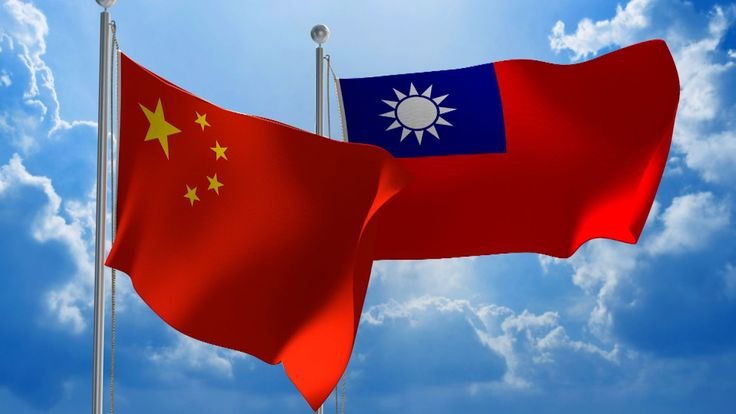The relationship between China and Taiwan remains one of the most significant geopolitical issues of the 21st century. As tensions between the two entities continue to escalate, the international community is closely monitoring the situation, given its potential implications for global stability and security. This article explores the current state of China-Taiwan relations, the ongoing military exercises, and the diplomatic maneuvers that are shaping the future of this fraught dynamic.
Historical Context
The roots of the China-Taiwan conflict can be traced back to the Chinese Civil War, which ended in 1949 with the establishment of the People’s Republic of China (PRC) under the leadership of the Communist Party of China (CPC). The defeated Nationalist forces, led by the Kuomintang (KMT), retreated to Taiwan, where they established a separate government. Since then, the PRC has claimed Taiwan as part of its territory, while Taiwan maintains its own government and military, operating as a de facto independent state.
Current State of Relations
In recent years, the relationship between China and Taiwan has become increasingly strained. The PRC’s rising assertiveness, combined with Taiwan’s own efforts to bolster its international presence, has created a complex and volatile environment. This tension is manifesting in several ways, including military maneuvers, diplomatic standoffs, and economic pressures.
Military Exercises
China’s military exercises around Taiwan have become more frequent and intense. These drills are often perceived as a direct threat to Taiwan’s security and are designed to demonstrate China’s military capabilities and readiness. In 2023, China conducted a series of large-scale exercises near Taiwan, which included live-fire drills and simulated invasion scenarios. These maneuvers were widely viewed as a response to perceived provocations from Taiwan and its allies, particularly the United States.
The frequency and scale of these exercises have raised concerns about the potential for accidental conflict. The military tensions have also prompted Taiwan to enhance its own defense capabilities, including the acquisition of advanced weaponry and the strengthening of its military alliances. The situation has created a precarious balance of power in the region, with both sides preparing for the possibility of an armed conflict.
Diplomatic Maneuvers
Diplomatically, Taiwan’s efforts to strengthen its international standing have clashed with China’s insistence on the “One China” policy, which asserts that there is only one China, and Taiwan is a part of it. China has leveraged its economic and political influence to isolate Taiwan on the global stage, pressuring countries and international organizations to refrain from recognizing or engaging with Taiwan diplomatically.
Despite these pressures, Taiwan has made significant strides in expanding its international presence. The island has forged unofficial relations with several countries and has sought support from key global players, including the United States. The U.S. has been a particularly important ally, providing Taiwan with military aid and supporting its participation in international organizations, albeit in a limited capacity.
One of the most notable diplomatic moves by Taiwan in recent years has been its participation in global health initiatives and forums, despite China’s efforts to block its involvement. Taiwan’s handling of the COVID-19 pandemic was widely praised, and its expertise has been sought after by many countries. This has allowed Taiwan to assert itself as a valuable global player, even amid China’s efforts to marginalize it.
International Implications
The tensions between China and Taiwan have significant implications for the international community. The potential for a conflict in the Taiwan Strait poses a threat not only to regional stability but also to global economic and security interests. Taiwan is a major player in the global supply chain, particularly in the semiconductor industry, and any disruption in its operations could have far-reaching consequences for the global economy.
Economic Impact
Taiwan is home to some of the world’s leading semiconductor manufacturers, which are critical to numerous industries, including electronics, automotive, and telecommunications. A conflict in the Taiwan Strait could disrupt the supply of these vital components, leading to shortages and increased prices. This potential disruption has prompted many countries to reconsider their reliance on Taiwanese technology and to seek alternative sources for their supply chains.
Additionally, the economic fallout from a conflict could be severe, with potential impacts on global trade routes and investments. The Taiwan Strait is a crucial maritime passage for international shipping, and any conflict could disrupt the flow of goods and services, affecting economies worldwide.
Security Concerns
From a security perspective, a conflict over Taiwan could draw in major global powers, including the United States and its allies. The U.S. has committed to supporting Taiwan’s defense under the Taiwan Relations Act, and any aggression by China could prompt a significant international response. This could lead to a broader geopolitical conflict, with potential consequences for global security and stability.
The involvement of other countries in a Taiwan conflict could also lead to shifts in regional alliances and influence. Nations in the Asia-Pacific region, such as Japan, South Korea, and Australia, could be drawn into the conflict or be compelled to take sides, further complicating the geopolitical landscape.
The Role of International News
International news plays a crucial role in shaping public perception and policy responses regarding the China-Taiwan situation. Media coverage helps to highlight the key issues, provide analysis, and inform the global community about developments in the region. Accurate and timely reporting is essential for understanding the complexities of the conflict and for ensuring that policymakers have the information they need to respond effectively.
The media’s portrayal of the situation can also influence public opinion and international diplomacy. For example, extensive coverage of military exercises or diplomatic standoffs can increase awareness and concern about the potential for conflict, prompting governments and organizations to take action. Conversely, a lack of coverage or biased reporting can lead to misunderstandings and misinformed decisions.
Conclusion
The rising tensions between China and Taiwan remain a major concern for the international community. The ongoing military exercises, diplomatic maneuvers, and the broader implications for global security and economic stability underscore the importance of closely monitoring this complex and evolving situation. As the world watches, it is crucial for international news outlets to provide comprehensive and accurate coverage to ensure that stakeholders are well-informed and prepared to address the challenges posed by this high-stakes conflict.










